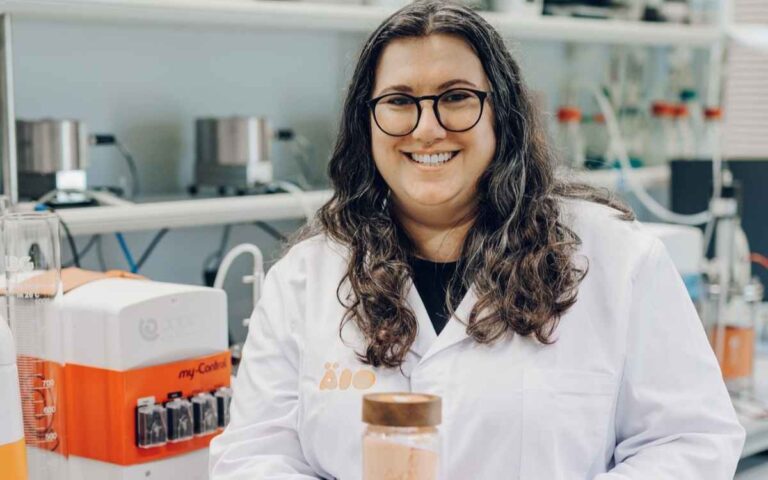During my time as a PhD student at UCL I was often asked by students in their 4th year of MEng or by Master’s students who were doing an MSc, for advice on how to “get into a PhD programme”. I find this question weird and I want to explain why by telling my own story. Below I will address the points I believe are the most important. Of course, every story is different but hopefully it will give you some guidance on how to approach this topic, if it is relevant to you.
DOING A PHD FOR THE SAKE OF HAVING A PHD
When I asked students why they were considering applying for a PhD they told me that it was considered prestigious and that it would be good for their career. This is not true, unless you want to stay in academia. Only a tiny fraction of industry jobs require a PhD and usually these are research related. Often a PhD does not teach you the skills you need in an industry environment, on the contrary. During my PhD I worked alone on my project and hence was the only one who ever looked at my code.
I never had any code reviews, I was not following best practices and no one cared how my git history looked like. As long as the code got the job done and I could run experiments smoothly and describe them in papers, it was good enough. So joining a company without a PhD as a junior, and acquiring all the necessary skills over the course of four years until you reach senior level, is better than joining after your PhD as a senior but still having to brush up on those skills. And not to forget – the one who went straight into industry got paid for the past four years, which leads me to the next point.
FOUR YEARS IS A LONG TIME
A Master’s degree in a certain subject can definitely be prestigious and be good for your career, and given Master’s programmes in the UK are only one year long, you can definitely force yourself to get through it, even if it is very tough. But a PhD is not a Master’s and four years (or longer if you decide to do some internships or take a break) are a long time which you can later regret wasting. Also, if you decide half way through that it is not for you, or do not get along with your supervisor (more on that below), the time spent so far will indeed be wasted.
During the first year PhD students usually accustom themselves with the relevant literature, build connections within their research circle, and start outlining their project. It usually takes up to another year to get to your first publication, and if during that time something goes wrong, you have not achieved anything – you will not get a degree and will not have a strong publication record. But how can you be sure that nothing will go wrong? Well, you can’t (that’s life), but there are a few things that significantly increase the chances of everything going well.
IT’S ALL ABOUT THE PROJECT
Just as you chose your Bachelor’s and Master’s degree based on the subject you are interested in, so you should choose your PhD topic. Applying for PhDs where you are not passionate about the topic will guarantee you a hard time where you will find it difficult to motivate yourself and produce results, which will not go unnoticed by your supervisor, which will further aggravate the situation.
I met my PhD supervisor through my Master’s thesis supervisor given they both worked in the same field of research at different universities. I really enjoyed my Master’s project and was happy to find out that my future PhD supervisor had funding to continue research on that topic and encouraged me to apply.
OK, IT’S NOT JUST ALL ABOUT THE PROJECT – IT IS ALSO ABOUT THE SUPERVISOR
The most common reason I have heard why people quit their PhDs was because they did not get along with their supervisor or received insufficient support and did not progress. Your supervisor will be your first point of contact throughout your whole time as a PhD student. If he or she is either absent all the time or the relationship between you two simply does not work out, neither will your PhD. So do your research: reach out to former students, check their publication record, talk to the student he or she is lecturing – don’t simply commit to a relationship with a person you do not know for the coming four years. You wouldn’t do this with romantic relationships either.
FUNDING
So far I have mainly focused on funded programmes (studentships) for which universities or other institutions have funding and you can apply for these. However, there is also the option to apply with your own research proposal and seek funding afterwards (either yourself or the university). This can be very time consuming and nerve wracking. Applying for funding is one of the most thankless tasks in academia. Check out this study on the impact of funding deadlines on health and medical researchers. The numbers are not pretty: 93% of the respondents said that they became stressed by the application process, 83% restricted their holidays during the grant-writing season, and 71% wanted major changes to the system.
So I would think twice whether a research proposal is not something your future employer could support you with, or you could down-scale and do it as a personal project without all the potential stress that comes with a PhD.
TEACHING
You either love it or you hate it – there is no in-between. And as a PhD student you will be expected to teach. Yes, there are ways to get around it, given there are people who love it and they will teach more than officially required, allowing those who don’t to keep their heads down. However, being a good academic also requires being able to explain your research to others in a way they understand it – exactly like a teacher explains their subject to their students. Teaching can be very satisfying, make you more confident, give you a sense of self-worth at times where your research might not go so well, and give you the chance to meet and connect with bright and wonderful people (your students).
Teaching was an integral part of my time at UCL. There were times where I dedicated much more time to teaching than to my research, because I loved it so much. It gave me not just the opportunity to brush up my computer science and maths skills (and get paid for it!) given I never studied computer science as a Bachelor’s degree but had to teach Bachelor’s courses, but also taught me how to be a good teacher and mentor.
I spent countless hours in labs, supervised group projects and then later Master’s students with their dissertations, and now use my acquired skills to continue what I love as a side-hustle outside of academia. I met wonderful people along the way – teachers as well as students and it made my time at UCL so much more interesting, lively and worthy. However, teaching is not for everybody, and hence should also be considered before applying for a PhD.
There are certainly more things to talk about like the life after the PhD if you want to stay in academia, but for now I hope the points above gave you some guidance on how to structure your thought process if you are considering applying for a PhD in computer science.








